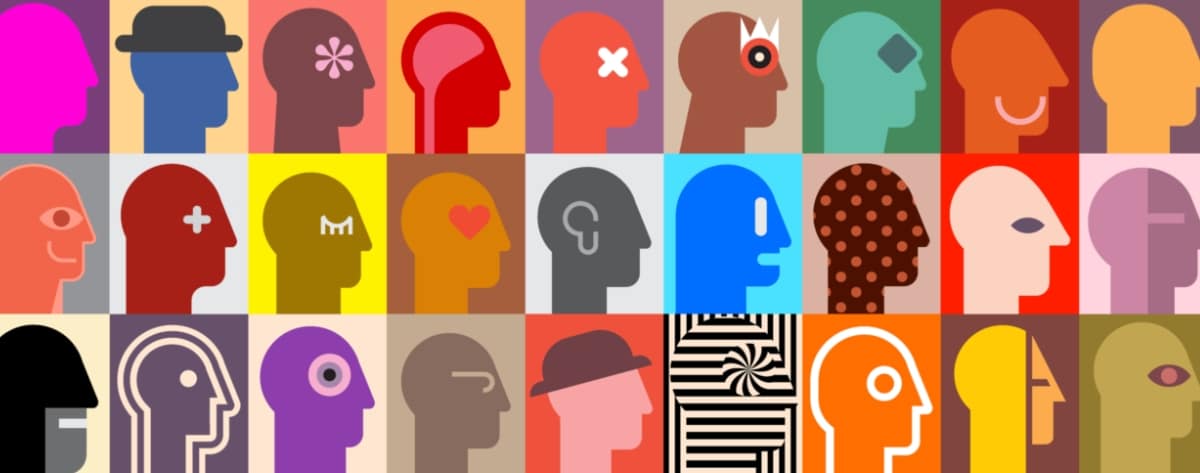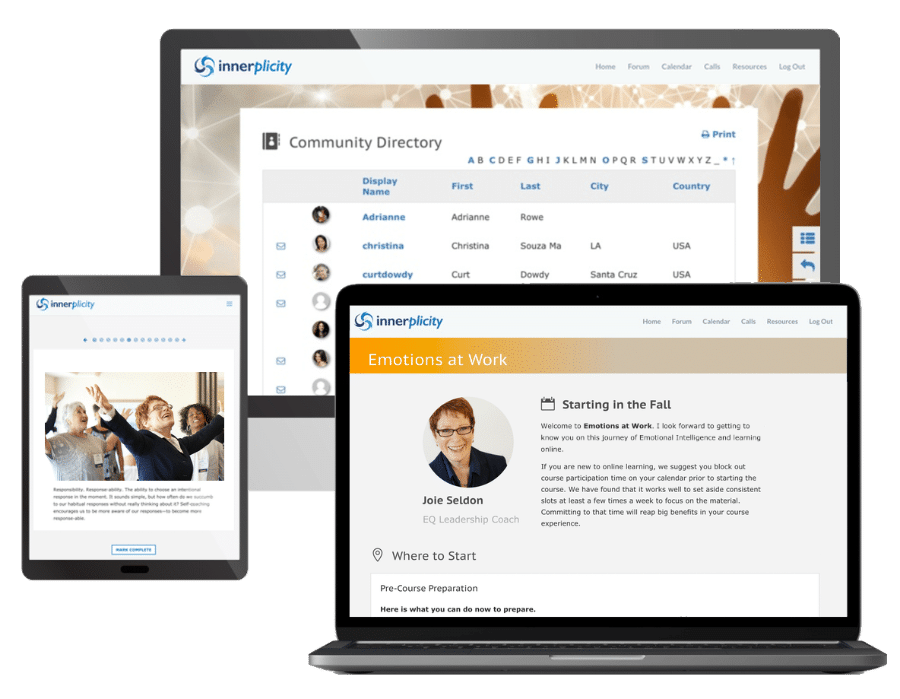
Emotional Intelligence to Achieve Equity
– 3 min –
DEI & EQ – Why Emotional Intelligence is Needed to Make Diversity, Equity and Inclusion Work
Relatively recently, since around the 1960’s, ‘Diversity, Equity & Inclusion’ has become a hot topic. It’s about time. The fallacy that anyone can realize their dreams in America has never been more evident.
While this is a challenging time, it is also an exciting time. Change is happening. Light is being shed on the inequity that has existed in the workplace since, well, forever. Companies (at least some) are taking tangible steps, and the evidence of the positive financial benefits is showing. Still, we have a long way to go.
While the tactical aspects are crucial – hiring and promotion practices, unconscious bias training, etc. – there is an area I want to put a spotlight on: human interaction. For policies to have real impact, people must interact with each other. They must communicate. They must get along.
This is where Emotional Intelligence comes in. If real change is going to happen, people’s feelings, conscious or not, are going to come into play. Given the evidence that some people would rather risk death than be told what to do, what’s going to happen when two people with different points of view have to work on the same team with a common goal? What feelings will arise when the status quo is disrupted?
I’d bet my bank account that fear and anger will be the top contenders. These are the fight-or-flight emotions meant to protect you when you are threatened with physical harm. Because your survival instinct is always at the ready, any major change is going to set it off. Emotionally intelligent people will feel these emotions but not take them at face value. They will go deeper to understand their feelings and act appropriately.
And what about the all too often unacknowledged sadness that comes with loss? Two common responses to significant change are relief (what I imagine anyone who’s suffered from bias and limited opportunity will experience) or sadness that comes from losing a particular way of life. In the “I’m never-going-to-show-weakness” U.S., sadness is not a welcome emotion, especially in the workplace.
Even those who are benefitting from DEI have a history. They have stories of injustice and likely habits of self-protection that won’t disappear in a flash.
Emotional Intelligence training and education will go a long way in smoothing the path of change. In fact, I think it’s essential. Without the ability to navigate your own emotions, have the empathy that leads to understanding others, and act in ways that benefit others as well as ourselves, we will inevitably fall back on old beliefs and old ways of behaving.
I invite you to take a moment to think about and feel how you can improve your own ability to navigate change. Where do you feel challenged? Is it within yourself, or interacting with others? What is one step you can take to smooth the path of change? It’s never too late to start making those changes, so take that first step now.
Joie Seldon, Author & EQ Leadership Coach
Joie Seldon spent forty years building her work as a trainer, leadership coach and expert in Emotional Intelligence, teaching executives and business professionals how to benefit from one of the most valuable yet underutilized aspects of a successful career, their emotions. The author of EMOTIONS An Owner's Manual and an electrifying speaker, she's presented to worldwide audiences online and onstage.
Learn more »
Trending
600 Million Breaths
- 5 min - It was a beautiful summer night in Chicago. Hot during the day but, once the sun...
Linking Uncertainty to ESG
- 5 min - If we know anything for sure, it is that the business environment will continue...
Executive Branding in A Changing World
- 2 min - Executive Branding isn't a topic I spend a lot of time on, but since I've been...
Why Is This Happening “For” Me?
- 2 min -We all face unwanted challenges in our life from time to time. And as a coach, as you...
Linking Uncertainty to ESG
- 5 min - If we know anything for sure, it is that the business environment will continue...
FEATURED COURSE
Emotions at Work
Strengthen your emotional intelligence to better navigate the complexity of emotions in ourselves and others. Enhance work relationships and minimize stress amidst the pressures of today’s fast-paced world.
On-Demand
Instructor-Led Course
8-Weeks Online
16hrs Est. Course time
Peer-group Networking



